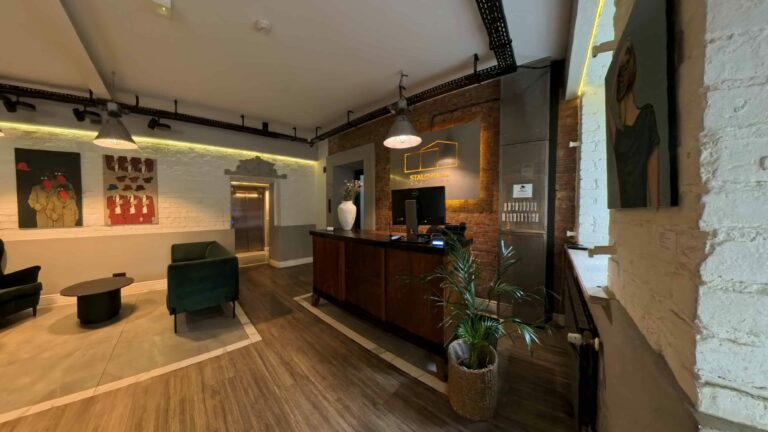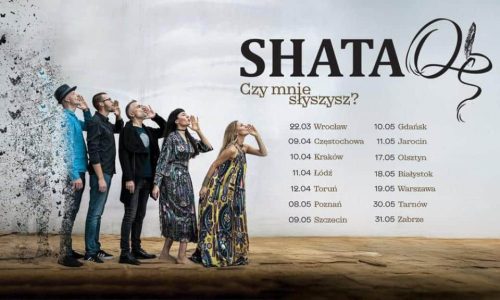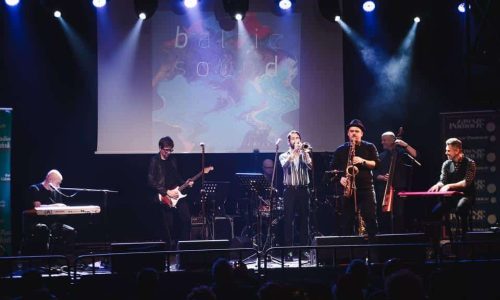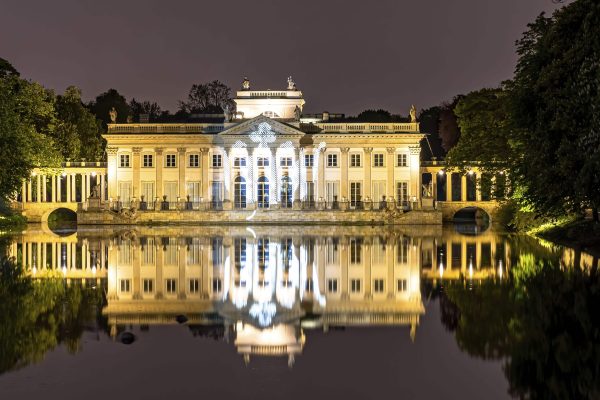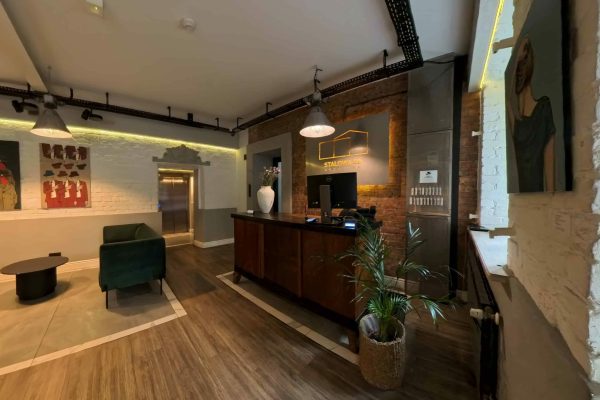As part of the JAZZ PO POLSKU 'Warsaw Live Sessions' project, there will be further authoritative concerts by the leaders of the Polish jazz scene, as well as guests from abroad.
Michał Barański - guitarist and double-bass player, one of the most creative, searching and daring artists of the contemporary Polish jazz scene. His oeuvre, apart from his club, stage and educational activities, includes several dozen records, made alongside leaders representing various, sometimes extreme areas of the music scene. The set of albums comprising Michał Barański's musical portrait could briefly include such albums as 'Presence' by the Triology trio with his mentor Brad Terry (2000), featuring Mateusz Kołakowski and Tomasz Torres. "Assymetry" with the Zbigniew Namysłowski ensemble (2006), Aga Zaryan's "Dying Beauty" (2007), "Early Reflections" with the Bennie Maupin Quartet (2008) and "Sacrum Profanum" with the Adam Bałdych Quartet. Michał Barański's biography features almost all the key names of Polish jazz, including, in addition to the aforementioned Zbigniew Namysłowski, also Tomasz Stanko and Michał Urbaniak. Recently, he has been studying Indian Carnatic music and demonstrating Indian vocal percussion (konnakol) in practice.
"Masovian Mantra" is a selection of at least three strands that the musicians led by Michał Barański, viz. Shachar Elnatan (guitar), Michał Tokaj (piano), Łukasz Żyta (percussion), Bodek Janke (tabla), Kuba Więcek (saxophone), Kacper Malisz (violin), Joachim Mencel (hurdy-gurdy), Olga Stopińska (vocals), Jan Smoczyński (accordion) and Dziadek Tadek (recitation) attempt to combine in one space. These are musical India, Polish folk tradition (with its symbolic mazurka triad) and the sound of contemporary jazz, with its patterns, dating back to the 1970s. It is worth recalling here, on the one hand, the legendary Ravi Shankar or the Shakti group with John Mc Laughlin, the practice of Indian konnakol rhythmic singing, but also, on the other hand, the achievements of Polish musicians, mainly Zbigniew Namysłowski (with whom Michał Barański recorded the album "Assymetry"), Tomasz Stańko (the famous trip to the Taj Mahal), the group Osjan or Sławomir Kulpowicz's experiments with the sitar virtuoso Shujaat Khan.
Indigenous ethnic motifs are associated in this case with the region of southern Mazovia, with a dominant, mazurka-like triple metre. An attentive ear will also detect sounds inspired most generally by the jazz fusion or ethno-fusion scene (e.g. Weather Report, Pat Metheny, Joe Zawinul Syndicate), as well as the style of contemporary artists increasingly appreciated by listeners and critics, such as the Armenian pianist Tigran Hamasyan (referred to by Michał Barański). Continuing the list of inspirations, one must add the elite double bassists and creators of the modern school of bass guitar, such as the legendary Jaco Pastorius or the contemporaries Avisha i Cohen and Hadrien Feraud
Composition:
- Michał Barański - double bass, bass guitar, Indian vocal percussion, beatbox,
- Shachar Elnatan - guitar, vocals,
- Michał Tokaj - piano, synthesisers,
- Łukasz Żyta - percussion.




























